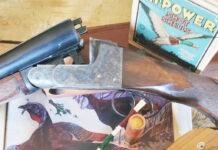One of my favorite quotes is, “it is impossible to learn that which you think you already know.” As a middle and high school teacher, one of my favorite teaching strategies was to start class with a discrepant event. These are demonstrations in which you ask the students what they think will happen, but what actually happens is usually contrary to what most will predict.
An example of this would be placing a note card over a glass of water that is completely full. Hold the note card on the top of the glass and flip the glass upside down. What would you expect to happen? Most students will say that the water and the note card will fall to the floor, but if the air pressure in the system is kept constant, the card will stay in place and the water will remain in the glass.
I don’t know if you know this, but middle school and high school people can be a tough crowd to teach. They often believe that they have seen and know it all; this is especially true in this age of TikTok, Youtube and the like. But a good discrepant event can cause them to ask questions, and when kids are asking questions, they are learning.
As adults, we can settle into what is known and comfortable. After many years in our vocation, the lessons that we learn on the job become fewer and we start to think that we “have seen it all.” This is a dangerous mindset to have because if we believe that we know it all, it creates a wall that makes it difficult to learn and to grow.
Knowledge
As the newest member of Carroll Soil and Water Conservation District, I am not in the comfortable position of feeling as if I know it all. On the contrary, I am so humbled by all that I do not know, I am often quite uncomfortable.
On July 11, I walked out of the classroom and into the green fields of conservation. I am a former middle and high school science teacher with 29 years of experience in public education. My father, Cliff Miller, passed away in March of 2021 and I needed to move closer to the family farm. Changing to a new career is difficult, but I felt like I was up for the task.
Despite that, I have to admit that I have had many times when I have felt like I am very much in the weeds. Even though I am very knowledgeable in the fields of biology and chemistry, I often feel very deficient in the knowledge that is necessary for the farm.
I knew that there would be a learning curve when I took this position, but I am often frustrated by it. There is only one way to overcome this frustration — I must commit myself to learning and trying new things. I must be humble enough to ask questions about things that I do not know or understand, and I must keep trying.
Questions
I recently had the pleasure of being able to visit the farm of Dave Brandt. I believe that Dave is the king of questions. His farm is like a living laboratory where Dave continuously tries to improve his soil health through the use of no-till farming and cover crops.
With 7% organic matter, his farm has some of the best soil in the state, perhaps the country, but he is still trying to improve it. He is still asking questions about his crops and his soil and he experiments with different cover crops to find the answers. He knows that you have to ask questions and take some risks to learn. He also knows that there is always something new to learn.
Keep learning
So, I would like to encourage you to keep learning. Every month, the soil and water conservation districts are offering programs to help people learn how to improve their farms, homesteads and backyards.
My experience with my new colleagues in the soil and water conservation districts and the Natural Resource Conservation Service has been very rewarding. They respect and appreciate the skills that I have, and they have been patient and accommodating of my many questions.
I am telling you this because I believe that there are readers out there who want to try something new on their farms or homesteads, but are afraid they don’t know enough. But true growth never comes from comfort.
True growth comes from taking a risk and being unsure of yourself, but you are not alone. There are tremendous resources and outstanding people who are ready and willing to help you, your fields and your pastures grow. Give us a call. Bring us your questions. Let’s grow together!














Thanks, Laura! Keep growing in all ways.